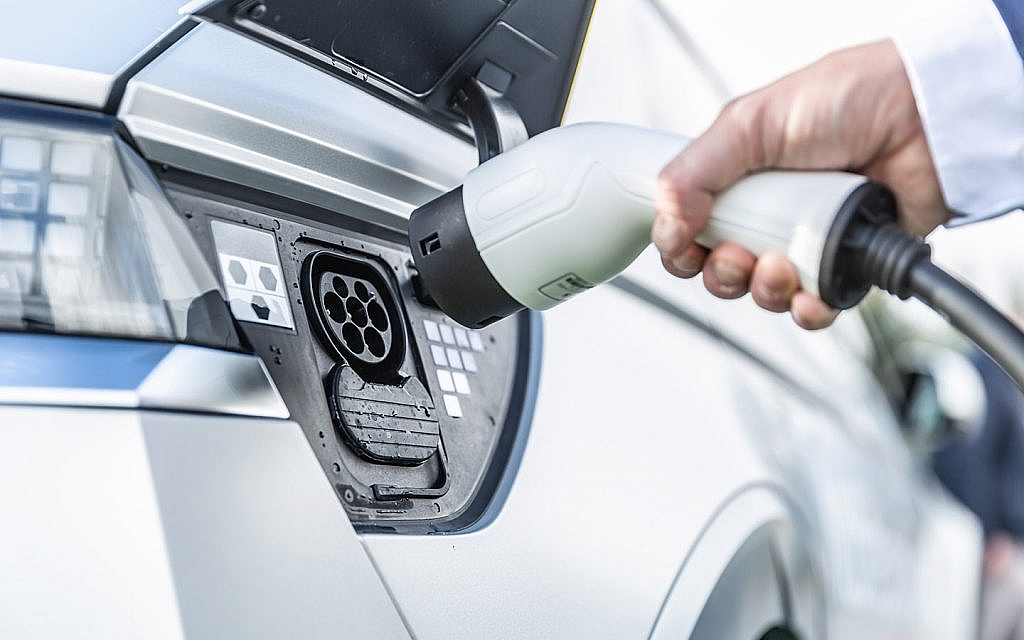Why Isn’t Your Electric Vehicle Charging?

- Charging Station Incompatibility
- In-Car Smart Charging Mode
- Damaged Cables and Ports
- Disruptive Data Connection
- User Mistakes
- Extension Cables
- FAQs
Electric vehicles have emerged at the automotive market forefront quite rapidly. EVs come with a range of benefits, from environmental friendliness to lower maintenance costs. However, charging can sometimes be tricky due to various factors. From charging infrastructure to compatibility and software problems, several factors influence the EV charging experience.
Here, we have compiled a list of common reasons why your EV is not charging. Let’s go through these causes one by one.
List of Common Reasons Why Your Electric Car Is Not Charging
EV charging is a simple, straightforward method. However, improper charging leads to electric car range anxiety – a common problem faced by EV owners. This problem arises due to multiple factors such as faults in charging cables or software problems. Being aware of these causes in advance allows you to troubleshoot and find solutions effectively when faced with charging issues.
Moving forward, here are the main causes and reasons why your EV is not charging.
Charging Station Incompatibility
Ensuring charging station compatibility is crucial for a smooth EV charging experience. Electric cars come with different EV connectors and standards and not all charging stations may support every type. It is essential to verify that your electric car’s charging port matches the connector type provided by the charging station.
Additionally, some stations may offer varying power levels, such as Level 2 (AC charging) or DC fast charging. You must select the power level as per the vehicle’s requirement. Moreover, such steps are crucial for an electric car battery maintenance routine.

Damaged Cables and Faulty Charging Ports
Damaged cables and faulty charging ports are common reasons why your electric car is not charging. When charging cables sustain damage, it disrupts the flow of electricity required for the charging process.
Frayed or broken cables result in intermittent connections, leading to unreliable charging. Similarly, faulty charging ports on either the vehicle or the charging station can hinder the proper power transfer. That said, be mindful of these aspects when charging your EV at home or in a public charging station.
Software Issues
Software glitches significantly impact an EV charging process, hindering its ability to charge effectively. These glitches may occur within the car’s computer or the charging station software. In some instances, a software glitch may prevent the initiation of the charging process altogether or result in unexpected pauses during charging.
Activation of In-Car Smart Charging Mode
In-car smart charging is a deliberate delay or adjustment to the charging process of an EV for specific reasons. Firstly, through scheduling, the system may postpone charging until off-peak hours when electricity costs are lower. It helps in optimising a cost-effective process.
During peak demand on the electrical grid, smart charging intentionally slows down or delays the process to reduce strain on the grid. Additionally, to preserve and boost the EV battery life, the system prioritises gentle charging over rapid charging, causing a deliberate delay in the charging process.

Data Connection Disruption
A disrupted data connection is a hurdle for EV charging stations and another of the reasons why your EV is not charging. These stations rely on a continuous data connection for crucial functions, including user authentication, transaction processing and real-time monitoring of the charging session.
Without a stable data connection, users may face difficulties initiating or completing the charging process. Additionally, a disrupted connection hinders the station’s ability to relay important information, such as charging status.
User Mistakes
In certain cases, charging stations may face operational challenges not because of technical faults but due to errors on the user’s part. For instance, when using an EV charging station in RAK, users might encounter problems if they fail to initiate the charging process correctly.
Other instances include misconnecting cables and misuse of authentication methods such as RFID cards or mobile apps. Besides, it is crucial to be familiar with the procedures of the charging station for a smooth EV charging experience.

Use of Extension Cables
Using an extension to charge an EV can cause a voltage drop, leading to slower charging and potential interruptions. The extended use poses overheating risks and increases electrical resistance, impacting charging efficiency.
This is why it’s crucial to use an EV charger recommended by the manufacturer and properly rated charging equipment that is directly connected to a power source. EV owners can also opt for onboard chargers to speed up the charging process.
FAQs
Can I use an extension lead to charge my electric car?
You can but we recommend against it. Using extension cables to charge your vehicle may lead to different EV battery issues such as overheating.
What are the symptoms of an EV not charging?
Symptoms of an EV not charging may include a lack of power indication and no response when plugged in. In case of a dead battery, the electric car will not start.
Why is my EV charging station not working?
An EV charging station may not work due to power supply interruptions, tripped circuit breaker, or faulty charging equipment.

Why is my EV charger plugged in but not charging?
If your EV charger is plugged in but unable to charge, it might be due to an inadequate power supply.
These were some of the most common reasons why your EV is not charging. From power supply to cables and ports, one must always check the charging equipment and other necessary accessories beforehand. Besides, always employ basic EV charging etiquette when using public charging stations.
In case you are in search of an EV, these used cars for sale in the UAE offer a myriad of choices. You can also go through these EV charging FAQs for any more queries.
For more information on EV charging and tips to navigate common issues, stay connected to dubizzle’s autos blog.